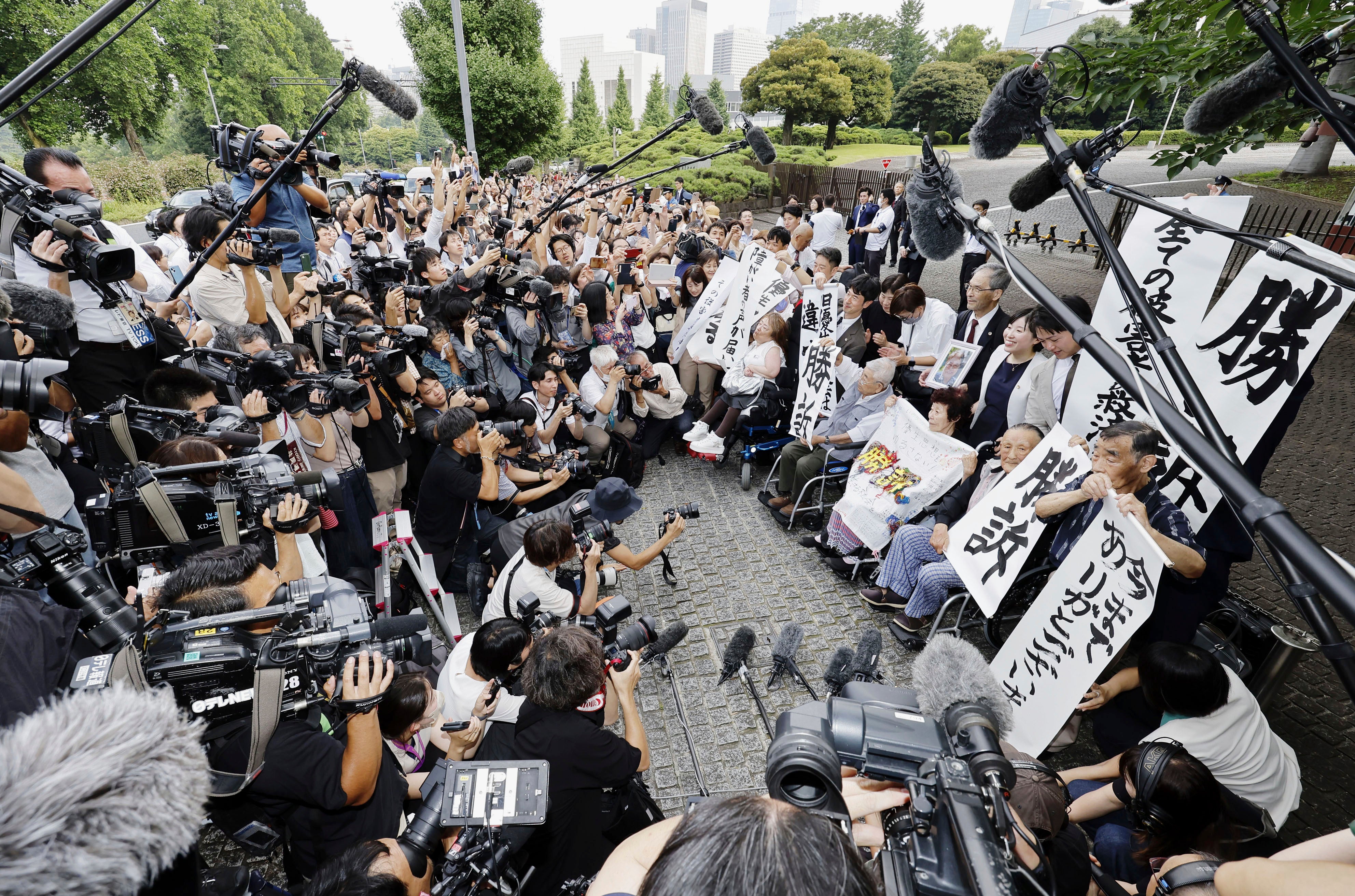Japanese PM bows deeply as he apologises to victims of forced sterilisation programme
Around 25,000 people were sterilised under the eugenics law between 1948 and 1996
Your support helps us to tell the story
From reproductive rights to climate change to Big Tech, The Independent is on the ground when the story is developing. Whether it's investigating the financials of Elon Musk's pro-Trump PAC or producing our latest documentary, 'The A Word', which shines a light on the American women fighting for reproductive rights, we know how important it is to parse out the facts from the messaging.
At such a critical moment in US history, we need reporters on the ground. Your donation allows us to keep sending journalists to speak to both sides of the story.
The Independent is trusted by Americans across the entire political spectrum. And unlike many other quality news outlets, we choose not to lock Americans out of our reporting and analysis with paywalls. We believe quality journalism should be available to everyone, paid for by those who can afford it.
Your support makes all the difference.Japanese prime minister Fumio Kishidi bowed in apology to the victims of forced sterilisation just weeks after Japan’s top court ruled that a defunct eugenics law under which thousands of people were forcibly sterilised between 1948 and 1996 was unconstitutional.
Mr Kishida apologised to the victims on Wednesday and said: “The government, which enforced the law, bears extremely grave responsibility. I am deeply sorry and I offer an apology on behalf of the government.”
He said: “I decided to meet with you today in order to personally express my remorse and apology for the tremendous physical and mental suffering that many people have endured based on the former Eugenic Protection Law.”
People who were forcibly sterilised had filed lawsuits across the country claiming the treatment meted out to them was unconstitutional and sought state compensation.
The Eugenic Protection Law, in place for 48 years until 1996, permitted doctors to sterilise people with mental or intellectual disabilities. The law was brought in to curb the population during food shortages after the Second World War.
According to The Mainichi, the prime minister met with more than 130 plaintiffs, lawyers and supporters and said “it is with deep regret that at least 25,000 people have suffered the grave harm of being sterilised”, under the now-defunct law.
Around 25,000 people were sterilised under the law, including some who consented under pressure.
Former prime minister Shinzo Abe had also issued a public apology to the victims and said the eugenics law had caused “great suffering”.
Meanwhile, Mr Kishida also announced that he had directed authorities to prepare a new compensation plan for survivors, but did not provide any details.
Plaintiffs and their supporters have contended that a previous government compensation offer of 3.2m yen (about £15,700) per person was insufficient.
They achieved a significant victory earlier this month when Japan’s Supreme Court ordered the government to pay 16.5m yen (about £80,000) each to the plaintiffs of several lawsuits and 2.2m yen (about £10,000) to their spouses.
As per a parliamentary report released last year, children as young as nine were among those sterilised under the now-defunct eugenics law in Japan.

Though forced sterilisation was outlawed in 1996, high school textbooks as recently as 1975 stated that Japan’s government was making efforts for the “country’s eugenics to improve and enhance the genetic predisposition of the entire public”.
“I heard the apology directly from the prime minister to the victims, but I think we could have heard it earlier,” Koji Niisato, an attorney for plaintiffs was quoted as saying by NHK.
“Today, I hope that you will listen to the actual conditions of the victims and their real voices and do your utmost to achieve a full resolution for them.”
Suzuki Yumi from Kobe City believed that the meeting was a significant first step towards eliminating discrimination against people with disabilities. However, she noted that many forms of discrimination still persist in Japan.
Kojima Kikuo from Sapporo City shared that Mr Kishida held his hands and acknowledged his hardships. But he was not ready to forgive so soon. He told NHK that what was done to him remains “unforgivable”.
Japan is not the only country to have conducted forced sterilisations.
In 1997, records were uncovered showing Sweden sterilised 60,000 women between 1935 and 1976, some due to physical or mental disabilities, others because they were seen to be “inferior racial types”. The government later passed legislation giving £14,250 in compensation to each of the victims of the programme.
This is not the first time Japan has apologised for its past excesses and wartime actions. Japan apologised for the forced recruitment of “comfort women” during World War II, but it was an apology that did not satisfy South Korea. Then again, it expressed “deep remorse” and a “heartfelt apology” for Japan’s wartime actions, including the 1937 Nanjing Massacre. Japan has also apologised to Australian prisoners of war (PoWs) who suffered under Japanese captivity during World War II.
However, Tessa Morris-Suzuki, an Australian historian noted in the East Asia Forum in a 2016 piece titled “The ever-shifting sands of Japanese apologies” that despite acknowledgements and apologies, Japan’s consistency in recognising the full extent of its historical responsibility is questionable.

Join our commenting forum
Join thought-provoking conversations, follow other Independent readers and see their replies
Comments